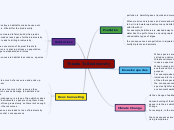par Rea Pavlopoulos Il y a 8 années
241
Alberta Oilsands
The Alberta oil sands are a significant environmental concern due to their extensive impacts on the natural landscape. Surface mining operations are particularly problematic, leading to the destruction of over 715 km² of boreal forest and contributing to high levels of carbon and greenhouse gas emissions.









